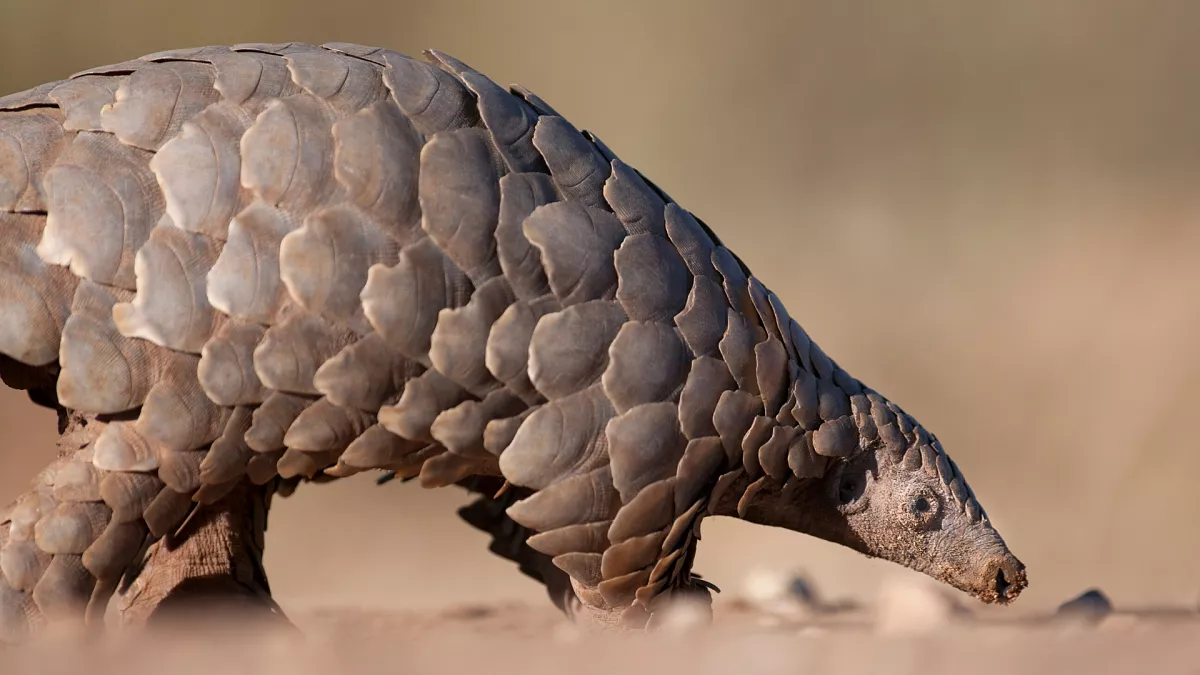Operation Pangolin emerges as a beacon of hope in the face of a looming crisis for pangolins, the world’s most trafficked wild mammals. With their scaly exteriors resembling creatures from the fantastical realm of Game of Thrones, pangolins are caught in a struggle for survival. Notably, they are hunted for their meat and scales, the latter erroneously valued in traditional Chinese practices, similar to the misguided beliefs associated with rhino horn.
The urgency of the situation cannot be overstated. Despite historical practices of sustainable hunting for food and medicinal purposes, the last few decades have witnessed an alarming surge in overexploitation, pushing all eight pangolin species to the brink of extinction. Operation Pangolin, introduced to combat this existential threat, marks a collaborative effort between researchers and conservationists.
This initiative, kick started in Cameroon and Gabon with vital support from the Paul G. Allen Family Foundation, aims to expand its reach into Nigeria. As the pangolin’s predicament unfolds, Operation Pangolin stands as a testament to humanity’s collective responsibility to protect and preserve the biodiversity of our planet. The following sections delve deeper into the complexities of the pangolin crisis and the multifaceted strategies Operation Pangolin employs to safeguard these unique creatures.
Illegal Trade Threatening Pangolin Survival
Historically, pangolins were sustainably hunted for food and medical purposes. However, over the last few decades, overexploitation has led to a rapid decline in all eight pangolin species. Found in Asia and Africa, these mammals are now victims of international wildlife trafficking, making them the most highly trafficked wild mammals globally. The article delves into the severity of the situation, with staggering numbers indicating the scale of pangolin trafficking.
Researchers and Conservationists Unite to Combat Extinction
Operation Pangolin emerges as a response to the pangolin crisis, with researchers and conservationists joining forces to prevent the extinction of these unique mammals. Launched initially in Cameroon and Gabon, the initiative aims to expand into Nigeria with core-funding support from the Paul G. Allen Family Foundation. The article highlights the interdisciplinary approach adopted by the project to address the complex challenges pangolins face.
Lack of Knowledge and Criminal Economy
Pangolins rank among the least studied land animals globally, contributing to the challenges of their conservation. The article sheds light on the lack of information about these creatures and the mysterious criminal economy that facilitates their illegal trade. Operation Pangolin seeks to unravel this mystery and generate crucial data to inform conservation strategies in Central Africa, with implications for the global wildlife trade.
Four Pillars to Save Pangolins from Extinction
Operation Pangolin is structured around four key pillars designed to tackle the multifaceted challenges faced by pangolins. These pillars include monitoring pangolin populations, understanding the social-ecological systems in key areas, leveraging insights from conservation criminology, and employing artificial intelligence and machine learning. The article explores how these pillars work in tandem to create a comprehensive framework for pangolin conservation.
Bringing Together Diverse Expertise for Pangolin Protection
The success of Operation Pangolin lies in its commitment to collaborative conservation efforts, uniting researchers from diverse institutions and fields of expertise. This inclusive approach recognizes the complexity of the pangolin crisis and the need for a multidisciplinary response. The initiative goes beyond academic boundaries, engaging with local conservation stakeholders to ensure a holistic strategy.
Operation Pangolin actively collaborates with indigenous peoples, local communities, and government agencies, acknowledging the crucial role these groups play in pangolin protection. By integrating traditional knowledge and local perspectives, the initiative aims to create culturally sensitive and effective conservation solutions. This collaborative ethos extends to the implementation of monitoring programs, conservation interventions, and the development of predictive tools to combat wildlife crime.
By fostering partnerships that bridge the gap between scientific expertise and local wisdom, the initiative aspires not only to save pangolins from extinction but also to create a sustainable model for wildlife conservation that respects the interconnectedness of ecosystems and communities.
Operation Pangolin as a Global Conservation Blueprint
Operation Pangolin emerges not merely as a localized initiative but as a beacon of hope on a global scale. With all eight pangolin species teetering on the brink of extinction, this conservation effort takes on a pivotal role in reshaping the fate of these unique mammals. This section explores the global significance of Operation Pangolin and its potential to influence broader conservation practices.
As the article has highlighted, the urgency surrounding pangolin conservation cannot be overstated. The threat of extinction looms large, necessitating swift and decisive action. Operation Pangolin steps onto the global stage as a transformative force, altering the landscape for not only pangolins but also for other wildlife imperiled by illicit human activities.
The initiative serves as a model for effective conservation strategies, demonstrating the power of collaborative efforts in the face of ecological crises. By addressing the root causes of pangolin decline and implementing comprehensive conservation measures, Operation Pangolin offers a blueprint that can be adapted and scaled to protect diverse species facing similar threats.
Operation Pangolin stands as a testament to the potential impact of well-informed, collaborative initiatives in safeguarding the delicate balance of our planet’s biodiversity. As we navigate the challenges of the 21st century, Operation Pangolin exemplifies a beacon of hope, guiding us toward a future where wildlife conservation is a global priority.

